A How-to Guide to Pay Off Debt
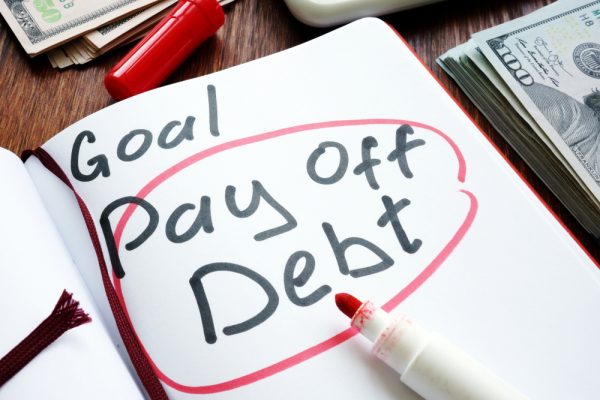
Dealing with a large debt load can feel like an impossible situation. Whether student loan debt, credit cards or even your mortgage, the financial pressure can cause severe stress.
Each month, as you scramble to make your payments, you may feel anxious and worried about how you can get out of this financial mess. We want to help you get what you owe under control.
Becoming debt free is possible and in this guide you will receive tips and guidance on achieving it!
In this guide you will learn:
- WHICH IS BETTER: SAVING MONEY OR PAYING OFF DEBT?
- HOW TO CREATE YOUR DEBT REPAYMENT PLAN
- APPS TO CALCULATE YOUR DEBT PAYING CAPACITY
- THE BEST OPTIONS TO PAY OFF DEBT
- CONSEQUENCES OF NOT PAYING YOUR DEBT
- COMMON MISTAKES TO AVOID WHEN PAYING DEBT
- KEY TAKEAWAYS FROM THIS GUIDE
Which Is Better: Saving Money or Paying Off Debt?
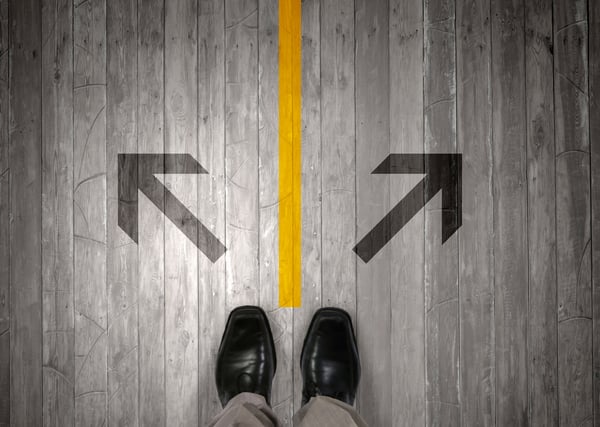
One of the first questions you must answer is whether you will pay off your debt first or build up your savings. Both options are valid, so let’s take a closer look at them to help you make an informed decision.
Benefits of Paying Off Debt First |
Advantages of Saving Money First |
| Lower debt-to-income ratios can have a direct impact on your credit rating | Building an emergency or savings fund allows you to avoid taking on additional debt when unexpected expenses come up. |
| The sooner you pay off your debt, the less money you spend on interest and the money you can save. | Establishing a savings account can help build up your credit score |
| Paying off debt can reduce stress and anxiety. | Saving accounts can improve your credit eligibility for certain types of lenders, such as mortgage lenders. |
Can You Do Both?
Yes, it is possible but varies case-by-case depending on the financial position of each family or individual. Let’s look at an example:
- A married couple where both spouses are employed. The couple has extra money that they want to allocate to either debt or savings.
- Depending on the amount, they can do both. If they have an extra $200, then they could allocate $100 to savings and the remaining $100 to paying down debt.
- It may take longer to build up the emergency fund and/or pay down debt but by working on both, the couple should not have to take on more debt in the event of an emergency (or at least less debt due to the savings).
- Another option would be to build up the emergency fund first and then aggressively pay down their debt later.
When deciding what your debt management plan will be like, take the following into consideration.
How to Create Your Debt Repayment Plan
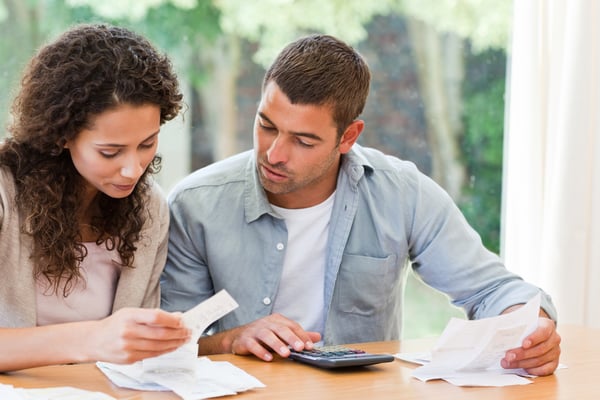
To create a debt repayment plan to meet your needs, you will need to know the total debt balance, consider how quickly you can pay off your debt and understand your monthly income.
1. Debt Balance
The amount of debt owed will make a difference in how quickly you can pay it off. Minimum monthly payments are calculated based on the balance owed and will determine if you can afford to make extra payments. The interest rate is tied to the amount owed, as higher interest rates mean a higher monthly payment and could result in you paying much more (principal plus interest) when repaying the loan.
2. Repayment Timing
The timing depends on your repayment plan. In case you have a student loan, the standard repayment plan and graduated repayment plans pay off the debt over 10 years. Extended repayment plans increase the repayment period to 25 years, according to the government’s StudentAid program. Meanwhile, in case of a private loan or credit card debt, it depends on how much you can settle with the creditor (bank or other financial institution).
3. Your Income
To pay your debt off quickly, you may need to increase your income in order to make additional payments. By having an extra $100 per month you could pay off your loan a few years ahead of schedule. Let’s say you have $10,000 in student loan debt with a 4.5% interest rate. By applying an additional $100 per month to your payments, you would pay off the loan five years earlier. When sending additional payments, make sure to tell your loan servicer to apply the payments to the principal balance and not the next month’s payment.
Below you will find creative ways to help you increase your income.
Basic Tips to Increase Your Income
1. Budget
To develop your own budgeting process, you will need both a savings and debt budget plan. In order to create these plans, you first need to understand where your money is currently going.
Here is an easy solution to help you start tracking your spending and more than likely the information is already available to you:
- Download your checking and credit card statements for the past couple of months.
- Use this information to create a spreadsheet with different categories based on your actual spending.
The moment you learn what you are spending your money on you can set spending targets in order to control your spending. Reviewing past expenses will also allow you to identify expenses that you can reduce or eliminate in order to save more money.
2. Trim Debt
According to the well-known financial advisor Dave Ramsey, it is best to organize and pay smaller debts first. You will still need to make at least the minimum payments on the larger debts to stay in good standings with your creditors. As you eliminate debt, you can begin to apply larger payments to your remaining balances. This debt repayment approach is known as the Debt Snowball Method.
3. Earn Additional Income
If you cannot trim your spending, you will need to find ways to earn additional income. You do not necessarily need to replace your job. However, you might consider getting a roommate to help with expenses, picking up a new hobby or getting a second job on your off days.
4. Save More Money
- Take public transportation, walk or ride a bike vs. driving in order to save on gas and parking fees.
- Spend less on discretionary expenses to have more money to put towards your debt.
- For non-essential spending, create a cash budget; by switching to cash only or using a prepaid debit card can help you reduce impulse purchases.
- Set up automatic withdrawals from your checking to your savings account each month.
- Download and use a spending tracking app.
- Do not close your credit card accounts, instead use them for emergencies only.
- Negotiate a lower balance with creditors
- Build an emergency savings fund of at least $1,000 to be used for unexpected expenses.
- Consider long-term investments to allow your money to earn interest over time.
- Assess downsizing your home to reduce your mortgage and home-related expenses.
- Use your IRS refund (if eligible) to pay off your debt, increase your savings or invest it.
Planning for debt repayment and/or saving begins with understanding what you can afford to put towards your debt and your savings plan.
Apps to Calculate Your Debt Paying Capacity

- Free online debt or savings calculators — Online calculators, like debt snowball calculator from NerdWallet or the debt repayment calculator help you plan your budget, savings and debt repayment. These are helpful because they give you instant information about your debt, such as the total amount you will be paying in interest, the length of time you will need to repay your debt, and how long it will take to achieve your desired savings level.
- Excel spreadsheets — If you are knowledgeable about working in Excel, Microsoft offers some functions that will help you figure out how to pay down your debt quickly. Spreadsheets are helpful because you can save your information to come back to later, unlike free online calculators.
- Apps — Mint has a great money management app that allows you to create custom budgets, track your spending and manage subscriptions all in one place.
Now that you know the tools, let’s look at your payment options depending on the type of debt you have.
The Best Options to Pay Off Debt
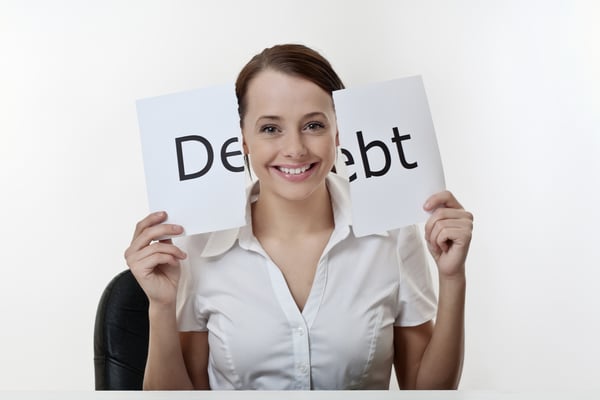
Paying Secured vs. Unsecured Debt
Secured debt is debt that is backed or secured with some collateral. This reduces the risk associated with lending the money to you in the event you are unable to repay the loan. Mortgages and car loans are secured. Many people are interested in paying off secured debt before unsecured debt in order to not have their assets seized due to lack of payment. If you do not pay your mortgage then your house could be foreclosed. If you do not pay your car loan, then your car could be repossessed.
Student loans are considered unsecured debt. Unsecured debt is not secured with collateral and therefore lack of payment does not necessarily mean that your assets will be seized. However, lack of payment on unsecured loans will still impact your credit score negatively and you will have to answer to your creditors. When prioritizing which debt to pay, paying secured debt first is essential.
Alternative Payment Options Based on Debt Type
- Home loans — If you are finding it difficult to keep up with monthly payments then consider refinancing your home loans to reduce the monthly payments.
- Student loans — If you have student loans, you can apply for anincome based repayment plan under the government’s Student Aid Program, which aims to lower monthly payments and eventually forgive your loans.
- Credit cards — Did you know that it is possible to settle credit card debt for a percentage of what you owe? You can negotiate a deal if you approach it with some knowledge and determination, says The Balance. Another option is consolidating your credit card payments into a personal loan if the terms are favorable, Business Insider explains.
Here are some common ways to pay off larger debt balances.
| Loan for a Loan | Refinancing | Consolidation | Settlement | Loan Forgiveness | Restructuring | |
| What is it? | This is a personal loan, which you get for the sole purpose of paying off debt; it can be used individually or as part of a credit card or small loan debt consolidation. Normally, it is a voluntary loan, not part of a refinancing program. | Replaces an existing loan with a new one. If you have decent credit scores, you might refinance your home or auto loan amount to get lower interest rates. | Takes multiple debts and rolls them into one new loan with one monthly payment. | You and your creditor agree to reduce your debt balance. Requires you to place money into a savings account specifically meant to build a sound settlement amount to negotiate with. | It is a program available for federal student loans. Through this option, you are no longer required to pay some or all of your loan balances. | For borrowers who are at risk of bankruptcy or defaulting on loans, lenders can agree on a lower amount to be paid back. |
| Goal | Use new debt money to pay current debt faster and with cheaper payments | Get lower interest rates and save money | To better manage what you owe and to lower the amount of interest you pay | Settle debt for less than the total amount owed. | Eliminate all or some of the loan debt | Lower the interest rate, extend the repayment period to lower the monthly payments or forgive some of the overall balance |
| Why Is It Convenient? | If you can get a loan with better terms, then this could help you regain control of your finances. It can improve your credit score | The convenience depends on what you refinance; if it’s a lower interest rate, you pay down your balance.. If you shorten the loan term, you reduce the number of years. | Often the new loan has better terms and usually lowers the total monthly payments. It also makes it easier to manage debt by requiring just one monthly payment. | It is one of the fastest, cheapest ways to eliminate part of your debt. Settling your debt should be a last resort because it will negatively affect your credit score and may cost you more money over time. | As the debtor, you are released from paying some or all of your debt. You must meet certain criteria to be eligible to apply. | This process changes the terms of your loan to make it easier for you to repay it based on your current income. |
We will now cover what can happen to you if you fail to pay your debt and certain exceptions you may qualify for.
Consequences of Not Paying Your Debt

According to state and federal laws, it is not illegal to default on a loan. Yes, prison time is a punishment in certain financial cases, but NOT when it comes to defaulting on a loan.
Not Out of The Woods Yet
If you keep missing payments, you risk defaulting on the loan, states Credit Karma. When this occurs, the loan will probably be sent or sold to a collection agency. From there, the sole goal of the agency is to retrieve the money that you owe. Here are the ways defaulting on a loan can impact you:
- Credit score: Defaulting on a loan is a credit score killer. In fact, defaulting on a loan can drop your credit score by up to 350 points, warns US News.
- Personal finance: If a collections agency or creditor pursues a judgment against you, they may be able to collect what you owe via wage garnishment or seizure of property.
- Daily life: Day-to-day life can be significantly uprooted if you were to default on a loan, based on much of the information already shared in this post. However, there are some exceptions and things you can do to take back control of your financial situation.
Are There Any Exceptions?
In certain situations and with certain types of loans, there are exceptions. There may also be legal reasons to not pay loans. Here are a few instances where you may be able to take advantage of exemptions:
- Forbearance and deferment: Most commonly associated with defaulting on a federally held student loan, borrowers may be eligible to defer or make a reduced payment for up to three years if they meet specific financial hardship requirements, says Debt.org.
- Rehabilitation: Agreements made between borrower and lender that may be able to undo a default if certain conditions are met over an agreed-upon period.
- Bankruptcy: Though this should always be considered a last resort, it can completely erase a judgment. However, filing bankruptcy basically allows anything you own to be liquidated to settle as much outstanding debt as possible with creditors.
Is Transferring or Sharing Debt an Option?
Transferring or sharing debt is most commonly used when it comes to credit card debt. When transferring debt, it is possible to consolidate multiple types of credit into one account with only one monthly payment. However, we only recommend this option if the balance transfer fee is free or minimal, and if the interest rate on the account you are transferring to is lower than the average interest rate you were paying before. It may also be possible to transfer your debt to another individual’s credit card in some circumstances should they be a willing recipient.
What if I Am Unemployed?
If you are unemployed, you may not feel capable of continuing to pay towards your debt or getting it under control. Do not fret, you still have options.
- Refinancing: You may be able to refinance your mortgage loan at a lower interest rate, so that payments are more bearable. If you have ten years remaining on your mortgage, you can refinance for 20 years and cut your payments in half.
- Loan forgiveness: If you genuinely cannot pay your loans without hardship, there is usually some method of loan forgiveness open to you, according to Credit Karma. Take a look at your options with your creditor. Debt forgiveness may be challenging receiving if you do not have proof of income.
Also, you may also be able to apply for unemployment in order to receive some income.
Regardless of the type of debt repayment option you choose, be careful to avoid these common mistakes.
Common Mistakes to Avoid When Paying Debt
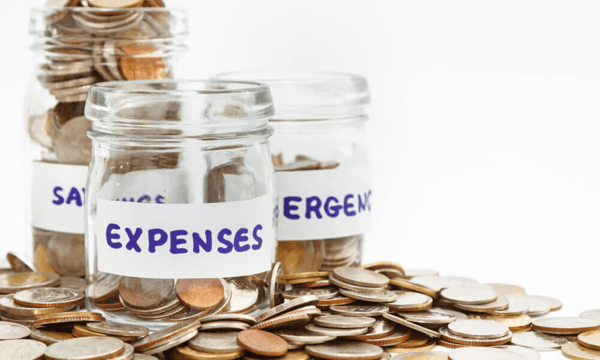
Regardless of the type of debt repayment option you choose, be careful to avoid these common mistakes:
- Timing — If you have a student loan debt and you opt to consolidate or settle your loans and then later look for a loan forgiveness program, make sure the timing is right. Loan forgiveness programs often require a period of qualified payments and the consolidation process restarts the clock on those payments, which may make you ineligible for the program.
- Amount — Paying down your debt ahead of schedule seems like a good plan for almost every debt repayment option except for loan forgiveness; you could end up repaying money that would have been forgiven.
- Interest Rates — If you choose to consolidate or take out a different loan, make sure you understand the interest rate. The interest rate may only be lower for a period of time. And you want to make sure that the interest rate after the promotional period will be better than your current loan’s interest rate.
- Avoid Collectors — If you have not gone to collections, it is in your best interest not to. Going to a collector will hurt your credit score—and the recent FICO changes mean that it will penalize your credit score even more than it would previously, Market Watch reports.
Key Takeaways from This Guide

- The longer you have debt (if you are incurring interest) the more you will repay due to paying both principal (original loan amount) plus interest.
- Budgeting helps you spend responsibly. You will know how much money comes in and goes out. It is important that you understand your financial capacity BEFORE getting into debt.
- There are several alternative payment options such as debt forgiveness, consolidation or refinancing to help you better manage your debt. Many options change the loan terms to make it more suitable for your monthly budget and some options can reduce or eliminate your balance.
- You can pay down debt and save money at the same time with planning and discipline.
- Once your debt and initial savings are under control, then you can focus on additional financial goals, like investing.
- It is not against the law if you fail to pay back a loan, but it will hurt your personal financial situation and credit score.
- If you know you are going to be late or short on a payment, it is always best to take preventative action and contact the lender directly. Perhaps you can work on a plan to make things more manageable.
- Defaulting on a loan will not only reflect poorly on you as a consumer, it will also impact your credit eligibility and whether you will be approved for any other line of credit. A defaulted loan can stay on your credit report for up to 10 years — even if you settle it.
- Not paying your debt can lead to severe adverse actions such as foreclosure and repossession. Your credit score will go down and you may be unable to procure additional credit/loans in the future. You will likely see other effects such as not being able to rent or pass a background check for employment, due to a bad credit score.
- Financial calculators and other budgeting tools can help you start paying down your debt faster.
- Discuss your needs and goals with a financial professional or a credit counselor to understand the best options for you.
